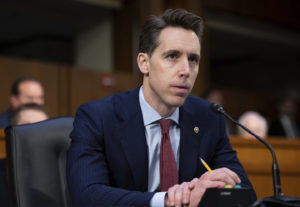International cycling organization bans transgender athletes to protect fairness in women’s division
Women’s rights scored another victory this month when the Union Cycliste Internationale announced transgender athletes could no longer compete in the women’s division.
“UCI would like to…

Women’s rights scored another victory this month when the Union Cycliste Internationale announced transgender athletes could no longer compete in the women’s division.
“UCI would like to reaffirm that cycling – as a competitive sport, leisure activity or means of transport – is open to everyone, including transgender people,” said its president, David Lappartient, in a press release. “However, [UCI] has a duty to guarantee, above all, equal opportunities for all competitors in cycling competitions.”
UCI is the international governing body for competitive cycling.
The change comes after increasing complaints from women about the injustice of having to compete against biological males.
Hannah Arensman, a female cycling champion who retired after a male competitor ousted her from the podium, described the situation as “increasingly discouraging.”
“I have felt deeply angered, disappointed, overlooked, and humiliated that the rule makers of women’s sports do not feel it is necessary to protect women’s sports to ensure fair competition,” Arensman testified at the U.S. Supreme Court in March.
But when Austin Killips, a transgender woman, won a UCI event by a 5-minute margin, the organization reconsidered.
“It is this imperative that led the UCI to conclude that, given the current state of scientific knowledge does not guarantee such equality of opportunity between transgender female athletes and cisgender female participants, it was not possible, as a precautionary measure, to authorise the former to race in the female categories,” Lappartient also said, according to the release.
Transgender cyclist Veronica Ivy called the decision “inhumane.”
“It’s an indignity. It’s inhumane. It’s disgusting,” Veronica Ivy, a biological male and two-time women’s masters cycling world champion, posted on social media regarding the new “Male/Open” category. “F— the UCI.”
The new rule cites scientific knowledge that reducing testosterone to 2.5 nmol/L – a common standard for transgender women – doesn’t erase the benefits of puberty in biological men.
However, UCI’s decision leaves a potential gray area for males who transition before puberty – which for boys usually start between ages 9 to 14.
Nonetheless, the announcement was celebrated by women’s rights advocates as a step in the right direction.
“I am enormously pleased to see the UCI has chosen fairness for women athletes,” said 10-time U.S. national champion Inga Thompson. “93% of the Pro Women Cyclists did not agree with the transgender woman competing in Women’s Cycling. UCI listened to their women and listened to the current science.”
The Independent Women’s Network praised UCI for “making the right move to protect fairness & equal opportunity to compete.”
Riley Gaines, a prominent advocate for women’s rights, also lauded the decision as “prioritiz[ing] fairness in sport rather than feelings.”
The new rule went into effect July 17.



